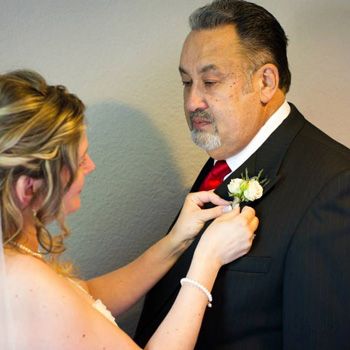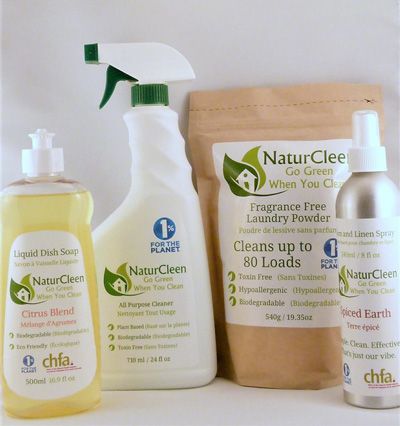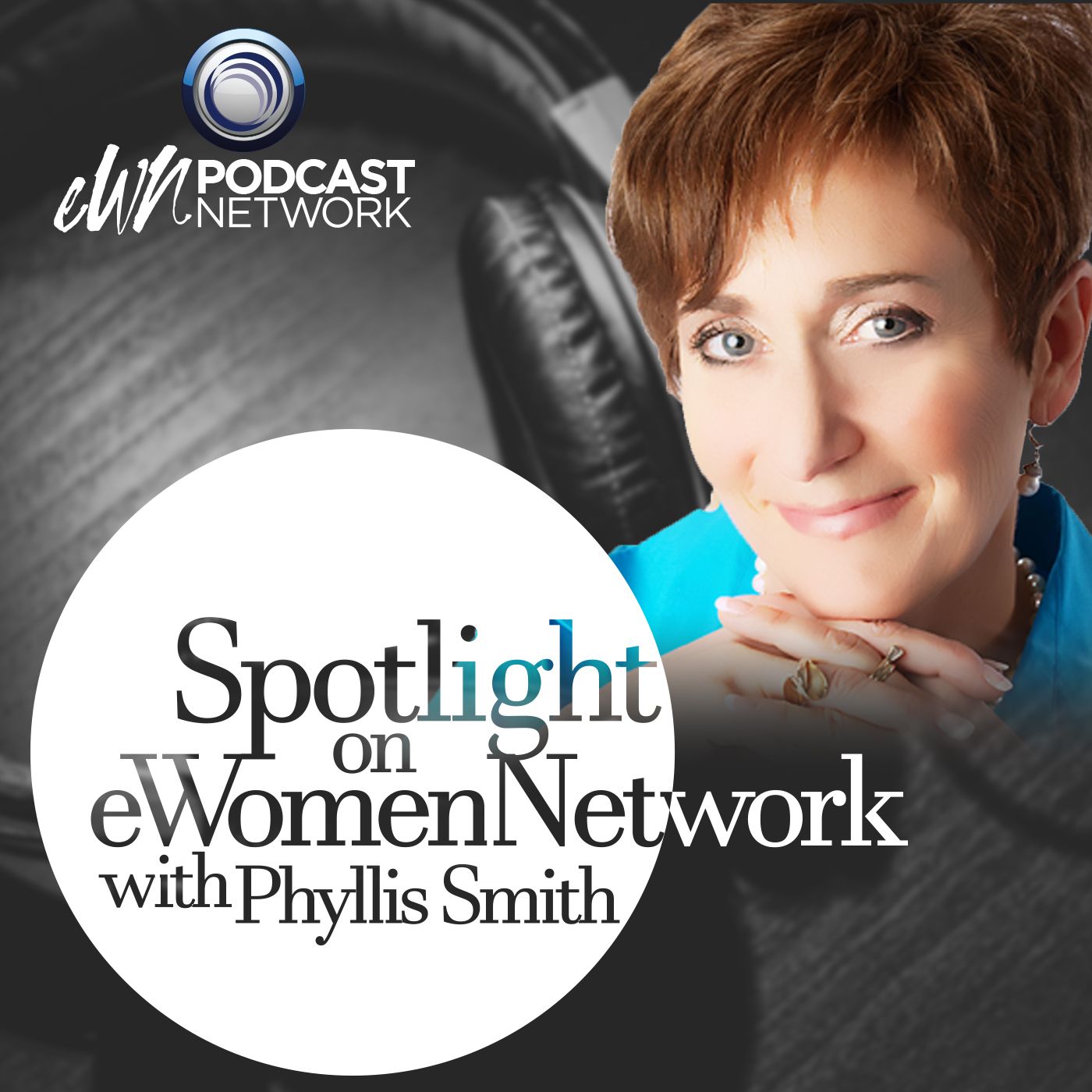(Partial Transcript with some edits from Interview below)

Little Girl, Big Mission
PHYLLIS SMITH: First, let’s talk about the experience you had when your father was battling cancer and eventually lost the battle to cancer. What was that like for you?
LORALEI SNIDER: That was a game changer. The day that my dad was diagnosed with cancer he phoned me and told me. Consequently, I got terrified of anyone else in my family getting sick particularly of anything that we can control. Literally within hours after crying, my statement to my husband was, “You know what, we’ve got to get rid of anything in our house. Everything, anything that has toxins in it.” You bring things in and you don’t really think … well, it’s not that bad. It’s not that bad, it’s okay and it won’t happen and then when it happens it’s a whole different ball game.
That started my journey of getting the few things that we had left cause I’m pretty much that earth girl. I’m the gardener, bee keeper, and nature queen. That started the journey to get everything out of our home. It led to some research and that research didn’t give me the answers that I wanted. I learned that things that I thought were true weren’t and I learned things that I knew were not true still had toxic items.
I was in this fight to save my dad too, you know. Maybe I could come up with something - the answers to save my dad and in the process, I can save the whole rest of my family. When I found that some natural products still had toxins in them that’s where I got to doing some research and creating my line of products which are very gentle on the environment and very gentle on your health. It took me a while of going through that while my dad was fighting a tough battle, but I’m happy to be where I am at now. Yeah, I lost both my parents last year to cancer so … little girl, big mission.
PHYLLIS SMITH: Oh, my goodness! That breaks my heart. Geez … just last year. That’s pretty raw on losing both your parents. I’m sorry to hear that. I do want to ask you; do you know if by any chance that the toxins caused the cancer in anyway or is this something you figured you could control this whereas you couldn’t control your parents and their having cancer and subsequently their passing away?
LORALEI SNIDER: Yeah. There’s 2 answers to that in the sense that I knew for my family and my friends that haven’t gotten sick yet, we could make that choice and subsequently significantly reduce the chance of us getting sick ourselves. Initially, it started for my close family and then it was like, “Oh my gosh. I have friends and they have family.” So, my little home based mission turned into a big mission ridding every household that I can reach with the most toxic chemicals.
I’m a registered massage therapist, so I have a background in health sciences. With my dad and wanting to save him and come up with the answer, I read a lot of medical journals. After he told me that his chemotherapy treatments had no effect on his cancer, I read a lot more and that’s where I discovered, my dad had Acute Myeloid Leukemia. That particular type of cancer has been linked to the toxins in home care and cleaning supplies. In a sense it was a little bit of falling into the right process. It wasn’t necessarily a conscious decision, "I’m doing home care and cleaning supplies because I know my dad’s cancer is linked to that." It was, "these are the things I know I can control and later I found out that what I’m trying to prevent is exactly very likely what made my dad sick."
The Business of Green to Clean
PHYLLIS SMITH: Your family are the guinea pigs for everything you’re creating I imagine. Do you find that there is a difference in your home using these products that you’ve created? If so, how so?
LORALEI SNIDER: We’re seeing a lot of differences. I also used friends as guinea pigs, professional home cleaners, and moms with kids under 5. This a big deal and I reached out to whoever would help me and test them.
In my own home, what we notice is that my daughter’s and my allergies seemed to have disappeared and again in doing some research I did find that some of the toxins can induce asthma and allergy reactions. We sleep better, and I know I’m taking better care of my pets because what I make is pet friendly as well.
I have friends who have dermal problems like eczema. I have one friend who had very bad eczema and she’s allergic to almost everything under the sun. She started using my laundry soap and she buys it for her friends now. Her eczema is disappearing. She is allergic to so many things, one of the things she's allergic to is latex in cleaning gloves and she uses my all-purpose cleaner without gloves and has no issues.
I’ve received a lot of great feedback from people with psoriasis, eczema, fragrance sensitivities, allergies for us. It’s a huge thing that’s happening. Again, little by little I’m making a big impact hopefully.

A Mad Scientist
PHYLLIS SMITH: Take us through the process when you started putting things together. I can just see you as a mad scientist.
LORALEI SNIDER: Oh, totally.
PHYLLIS SMITH: These natural products that exist in nature and on the grocery shelves and things like that. What did you start with? Why did you start with that in particular? Then what was it like for you? Did you get help? Did you get other people to pitch in and were you on your living room floor or in your kitchen putting this stuff together? Take us through that process.
LORALEI SNIDER: You pretty much nailed it. That mad scientist is what I referred to myself as. As a registered massage therapist in DC. I have a background in health sciences and part of that process was also to study organic chemistry. I have a background in organic chemistry, health sciences, anatomy, physiology and disease. That was a good start. I studied a little about safe dilution rates for aromatherapy because I used essential oils in my products in anything that’s fragranced.
My first product was the laundry powder because again, I’m a registered massage therapist, so this is daily for me. I wash my sheets and my face pieces daily. I noticed my patients who would have sensitivities to fragrance and I always try to use fragrance-free, but they love it because the sheets are so soft. No issues at all for any kind of skin or inhaling allergies. They love that.
It was a big process. I did a lot of research. I looked at different cleaning agents. I looked at different formulas that were out on the internet and tried them. Then it was over the course of like 9 versions that I finally got my own ratios right. To do what I wanted because the first thing that I tried was a great cleaner, but it was very powdery, so you’d inhale it and that’s not what you want to be doing. I added a little bit of this and a little bit of that and came up with what I’ve got now which is fantastic.
Little Government Oversight
PHYLLIS SMITH: In the US you must go through the FTC (Federal Trade Commission), Consumer Product Safety Commission and all that. Things are not so easy to get approved here. Things that are approved in Europe for example, are not necessarily approved over here. Have you gotten your products approved in the government? Is that a requirement in Canada? Is that something that you’re going to do?
LORALEI SNIDER: In fact, what the reality is for home care and cleaning products in the US and in Canada, there’s no requirement to tell you everything that’s in the products at all. Cosmetics, that industry is very heavily regulated. When it comes to home care and cleaning supplies they have a lot of ingredients that have been approved both in the US and in Canada that are what they’ve deemed in small dilution rates and small usage rates are safe, but they’re toxins. Over time these build up in your body. What I do to combat that and what I would love to see across North America is I would love to see that change where companies are absolutely regulated, absolutely required to use full disclosure. I use full disclosure, everything that is in my products is listed on my products, so people know exactly what they’re buying.
That’s something that I’m proud of and I find that when people are educated, when they know what they’re getting, they’re able to make those choices for themselves and it’s often a better choice that they would make without that knowledge.
PHYLLIS SMITH: You mention that there could be traces of toxins in some of the products that we get even if they say natural. What are some of the ingredients that we should be looking for in those common products that could be toxic?
LORALEI SNIDER: Two of the big things, if you see DEA or TEA, those are cancer causing agents. SLS (Sodium Lauryl Sulfate) again, known cancer causing agents. One of the big things I see companies list is “fragrance”. Fragrance is often a synthetic component and it’s made using phthalates and parabens. Phthalates have been linked to early onset of puberty in young ladies and that early onset of puberty is linked to early onset of breast cancer and parabens have been found when they’ve done biopsy of breast cancer tissue. The parabens, the phthalates, and the things that they don’t tell you that are in there are things like fertilizers are neurotoxins. There’s not much you can do about that other than to know that they are there or do some heavy and deep research. But if you're picking something up off the shelf look for DEA, TEA, parabens, phthalates, SLS, fragrance – if it just says fragrance, get rid of it.
PHYLLIS SMITH: It’s funny because I don’t use laundry detergent that has fragrance in at all because my kids and I get allergic. We’ve always had very sensitive skin. I thought it was just skin sensitivity, but it sounds like what you’re describing is toxic to our bodies. Let’s make that comparison in your research – is it possible that some people are hypersensitive to certain things and others aren’t? For instance, one might be more prone to getting eczema, they have very dry skin and so they must use more sensitive products as opposed to they are toxic.
LORALEI SNIDER: Yeah. When I see sensitivity, yes, you may be sensitive. For instance, in my room and linen sprays a couple of them have lavender in them and somebody’s allergic to lavender. There is that possibility, however, the occurrence of that compared to a sensitivity that is developed because of toxicity build up is small. Right? What we have is toxic load and our bodies are not really built to get rid of the toxins. Even though a lot of fragrance free products may be fragrance free they may not necessarily be natural which means they still have toxins in them. Oftentimes, companies what they do is, the horrible toxin smell is awful, they throw a bunch of other toxic products to nullify that smell. So, it’s not truly fragrance free. Does that make sense?
PHYLLIS SMITH: Yeah, it makes sense. The interesting thing is, especially when you’re talking about our skin, you ask what the largest organ in our body is and people must think about it and they don’t realize it’s your skin. Whether we ingest it or put it on our skin, our skin is exposed to it. Think about how many pores we have in our skin and what we’re bringing into our body and if you imagine some people are more immuno-compromised than others and particularly those people who have immune deficiencies. I imagine going toxin free is a better route for them.
LORALEI SNIDER: Yeah. In my opinion of course, going toxin free is a better route for everyone and it becomes a full circle. When we use toxic products, those products get washed into our oceans, water systems, soil that grows our food, the water that we drink, and if you eat fish they’ve been exposed. There are also ingredients that increase the growth of algae in our water ways and when you have an increase in algae you’re depleting that system of oxygen for the fish to live. It’s killing off the fish. It can have over the long term a severe impact on whether we can feed ourselves and how well we can feed ourselves. In my opinion, it’s important the sooner we get into that space, go toxin free and understand that as we’re taking care of our health we’re also taking care of the environment that’s going to sustain our future generations. It’s a big impact that we’re having one household at a time.
PHYLLIS SMITH: I like that. One household at a time and it expands to the environment in our home, neighborhood, and beyond.
Transcription services provided by our eWomenNetwork member, Rhonda’s Virtual Office.
Want to improve your processes, save time, and make more money?
Contact Rhonda’s Virtual Office. They do it all!










